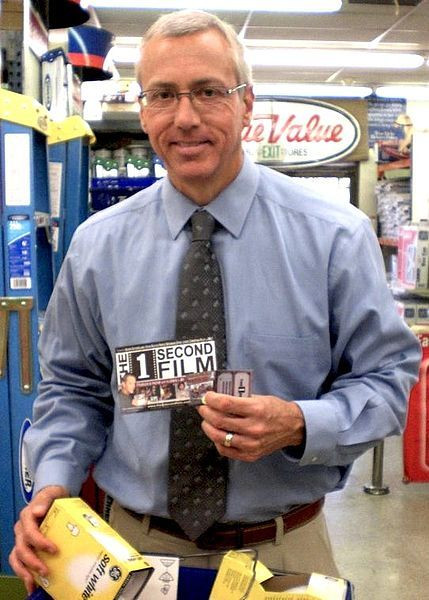Dr. Drew Pinsky Reveals Prostate Cancer Battle: TV Therapist Had Radical Robotic Prostatectomy, Is Now ‘Cancer-Free’ [VIDEO]

“While many of you were celebrating the Fourth of July, I was at home on my couch recovering from a radical robotic prostatectomy,” wrote Dr. Drew Pinsky in an intimate blog that documents his very private battle with prostate cancer. The television therapist, who helped many of your favorite stars overcome addiction, said that he is cancer-free for the first time in at least two years.
Pinsky said that — not unlike other males — he refused to go to the doctor for a checkup after feeling sick for a bit in 2011. But after being begged by his wife, he finally went in. Part of his physical included his blood being drawn for a prostate specific antigen (PSA) test. According to the National Cancer Institute, the PSA test measures the blood levels, checking for the protein produced by the prostate gland.
After the test, Pinsky was diagnosed with prostatitis, an inflammation of the prostate. His doctor then told him to get a biopsy. The biopsy revealed a tumor. After two years of active surveillance, Pinsky and his doctors decided that surgery was the best option.
“I’m relatively young,” he said. “I have a wife. I have three children in college. I didn’t want cancer coming back.”
He was going to have his prostate removed via a radical robotic prostatectomy. The surgery involves a four-armed robot, instead of a surgeon’s hands, maneuvering inside the body. Though recovery was painful, Pinsky says that the surgery was successful and worthwhile.
"I'm cancer-free," Pinsky said. "The erectile function is normal, sex drive is normal, bladder works normally. And I don't have to worry about prostate cancer."
In his blog, he also offered some advice to men about prostate cancer screening, calling it “10 Things To Know.” Read the list below:
- Prostate cancer is a complex disease.
- It behaves differently at different ages.
- PSA screening is complicated and controversial.
- If your doctor recommends a biopsy or ultrasound, don’t refuse simply because it involves a sensitive part of your body.
- If the results show the presence of cancer, don’t panic.
- Time is on your side. Don’t rush decisions about radiation or surgery.
- Many men can opt for active surveillance, watching the prostate over a period of months or years.
- There isn’t a by-the-book, one-size-fits-all treatment.
- Trust your doctors’ judgment and instincts. They have seen thousands of cases.
- You’re seeing your first case, and it’s you.
For more information on prostate cancer screening, visit the Prostate Cancer Foundation.



























